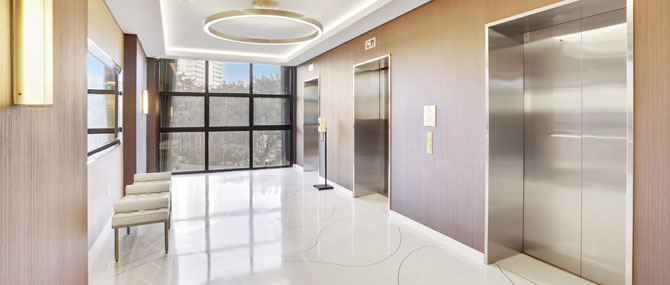
Condominium Renovation Needs a Special Kind of Project Manager
By Adam Snitzer / Published May 2021

When it comes to condominium renovation and restoration projects, associations often overpay for low-quality work and disorganized projects. Too many condominium projects turn into every unit owner’s nightmare, creating chaos within communities and costing homeowners millions of dollars more than necessary.
But, it doesn’t have to be that way. With the right kind of project manager, your condominium renovation project can run more smoothly, come in on time and within budget, and cause far less disruption to your residents.
The Challenge
All construction projects are complex, but condominium renovation and restoration projects can be among the most difficult of all. Think about it.
While many association board members are accomplished professionals who are competent and experts in their own fields, most of them aren’t engineers or general contractors. So, when it comes to managing and supervising construction, they aren’t fully prepared for the complexities and problems that come with every project, nor the vast amount of their own personal time it takes to execute a project successfully.
On top of that, condominium finances present a special challenge. Association board members aren’t just managing their own money. They have a fiduciary responsibility to ensure that the entire community’s money is spent wisely and put toward a long-lasting and positive investment. This is especially hard because most condominiums’ financial reserves are limited, and very few unit owners are enthusiastic about special assessments. In fact, unit owners are rarely enthusiastic about a condominium renovation project at all. No one wants to live through dust, dirt, and noise for months on end.
So, when it comes to large restoration or renovation projects, condominium association board members are caught between a rock and a hard place. They have fiduciary and statutory responsibility to properly maintain the building and its amenities. They’re entrusted by the unit owners to make difficult compromises between must-have and want-to-have renovations due to budgetary constraints. And they’re held accountable by dozens, if not hundreds, of unit owners for getting it all done with a minimum of disruption to the community.
That’s why condominium renovations and restorations are among the most complicated of all construction projects.
Common Solutions
Many corporations and government agencies have come to rely on professional project managers to administer complex projects. The project manager’s role is 1) to protect the owners’ interests and 2) to coordinate the people, equipment, materials, schedules, and money required to complete a project on time and within the approved budget.
The project manager organizes the team of people who will work on the project, coordinates their efforts, schedules work and logistics, identifies and solves problems, handles documentation, controls the budget, and communicates with everyone concerned.
However, unlike a large corporation, condominium associations don’t typically have professional project managers on staff. Instead, they usually take one of the following three approaches:
Option 1: They hire their architectural or engineering firm to provide project management services.
Option 2: They hire their property management company to provide project management services.
Option 3: They attempt to perform project management themselves.
Option 1
A condominium’s architectural or engineering firm has a good understanding of the project, particularly some of the most important technical and design aspects. Since they’re often engaged from the very beginning of the project, they already know and have a relationship with many of the people involved, including the board members.
But while architectural and engineering firms have a great deal of technical expertise, they are not experts in all the complexities of construction project management. Additionally, placing your architectural or engineering firm in the role of project manager creates an inherent conflict of interest. Even though the association may be paying an additional fee for project management services, the project manager still works for the architectural or engineering firm, not for the association. Therefore, the project manager is not in a position to question the architect or engineer, advocate for alternate approaches that may be more efficient and less expensive, or push back against change orders.
Option 2
An association’s property management company has a very good understanding of the condominium building and the rationale for the renovation or restoration project. They also know the residents well and are used to communicating with them regularly, which is very important during a major construction project.
However, placing your property management company in the role of project manager is also problematic. The property management team already has a full-time job managing the daily operations of the building and association, which becomes even more complicated during the large renovation or restoration project. Also, property management companies are typically not licensed, trained, or experienced enough in the construction process to deliver the association successful results in a multi-million-dollar construction project.
Option 3
Due to the financial challenges presented by a major restoration or renovation project, some association boards decide to forgo project management services entirely and assume those responsibilities themselves.
Although board members often make this commitment with the best of intentions to save money and help the community, the end result can be the opposite. Construction projects are extremely complex and require a full-time commitment and specialized knowledge of the construction process to keep them running on schedule and within budget.
Board members who are not construction experts often make well-intentioned mistakes that cost their associations hundreds of thousands of additional dollars—mistakes that would have been avoided by engaging a professional project management firm.
A Better Solution
In order to run a smooth project, avoid costly delays and surprises, and successfully complete a project on time and within budget, it makes sense for condominium associations to consider hiring an independent, professional project management company that will act solely on behalf of the community.
The ideal condominium renovation and restoration project management firm should have the following three key ingredients:
- Outstanding project management skills, with a proven track record of coordinating the people, equipment, materials, schedules, and money required to successfully complete a project.
- Ample experience and subject matter expertise in all aspects of construction, including engineering and design.
- Deep understanding of association governance, politics, and the unique challenges of executing a disruptive construction project in a fully occupied residential condominium.
A project management firm that has these three ingredients will be able to carry out the following:
- Speak the language of architects, engineers, and contractors.
- Review, understand, question, and improve upon project specifications.
- Identify opportunities to save money and maximize project efficiencies from start to finish.
- Understand the importance and the nuances of the bidding process to protect the community’s investment and keep costs in line.
- Protect the association from paying inflated prices.
- Ensure the project scope does not spiral into something much larger and more costly than anticipated.
- Apply expertise to logistics, scheduling, and purchasing in order to keep the project on track.
- Communicate frequently and in plain language to the board of directors and to the homeowners.
- Keep dust, noise, and lifestyle disruptions to a minimum.
- Motivate and lead the project team of designers, contractors, and subcontractors to successfully deliver the project,
Condominium renovation and restoration projects led by this kind of project manager run more smoothly and have a much greater likelihood of finishing on time and within budget.
Adam Snitzer
Director of Client Services, DSS Condo, LLC
Adam Snitzer is the Director of Client Services for DSS Condo, LLC, South Florida’s only project management/owners’ representative firm specializing exclusively in serving condominium and homeowner association communities. “What I love most about my job is the many ways we save money for our association clients,” says Snitzer. He can be reached via email at adam@dsscondo.com or by calling (786) 493-1632.








